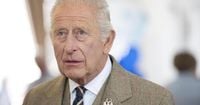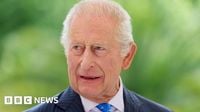On Monday, July 7, 2025, the United Kingdom solemnly marked the 20th anniversary of the devastating 7/7 London bombings, a day etched into the nation’s memory for the tragic loss of 52 lives and injuries to over 700 others. The coordinated suicide attacks, carried out by four Islamist extremists on London’s transport network during rush hour on July 7, 2005, remain a defining moment in British history, not only for the horror they inflicted but also for the extraordinary courage and resilience that followed.
At exactly 8:50 am on that fateful morning two decades ago, bombs detonated in rapid succession: Shehzad Tanweer at Aldgate, Mohammad Sidique Khan at Edgware Road, and Germaine Lindsay between King’s Cross and Russell Square, all within minutes. Later, at 9:47 am, Hasib Hussain exploded his device on a number 30 double-decker bus at Tavistock Square. The attacks shattered the city’s sense of security and ushered in a new era of terrorism on British soil.
King Charles, in a heartfelt message commemorating the anniversary, condemned the “senseless acts of evil” and called for unity against those who seek to divide society. “Today, as we mark 20 years since the tragic events of 7th July 2005, my heartfelt thoughts and special prayers remain with all those whose lives were forever changed on that terrible summer’s day,” he said. The King praised the “extraordinary courage and compassion” shown by emergency services, transport workers, and citizens who rushed toward danger to aid strangers, emphasizing that this spirit of unity has helped London and the nation heal.
Representing the King, the Duke and Duchess of Edinburgh attended the National Service of Commemoration at St Paul’s Cathedral, a solemn event reflecting on the lives lost and the enduring impact on survivors and families. Prime Minister Sir Keir Starmer and London Mayor Sir Sadiq Khan laid wreaths at Hyde Park’s 7/7 memorial at the exact time the first bomb exploded, reinforcing the nation’s commitment to remember and stand united.
Sir Keir Starmer remarked, “Those who tried to divide us failed. We stood together then, and we stand together now—against hate and for the values that define us of freedom, democracy and the rule of law.” Home Secretary Yvette Cooper echoed these sentiments, noting that while 20 years have passed, the attacks remain “no less shocking,” and the bravery of emergency responders and ordinary Londoners continues to inspire.
The attacks profoundly affected countless individuals. Adrian Heili, a former Armed Forces medic, was on the Circle Line train near Edgware Road when Mohammad Sidique Khan detonated his bomb. Adrian’s quick thinking and bravery saved numerous lives, including that of Daniel Biddle, whose horrific injuries included losing a leg and an eye. Adrian pinched shut an artery to stop bleeding and repeatedly re-entered the tunnel to assist in evacuations, exemplifying the selflessness that emerged amid chaos.
Similarly, Paul Dadge, a former firefighter, was photographed comforting a victim with severe burns to her face—a powerful image that went viral before social media’s rise. Paul organized and supported victims, noting the remarkable teamwork that day and how the experience shaped his life and political awareness. He believes emergency services are better prepared today but cautions that an incident on the scale of 7/7 would still be a formidable challenge.
Sajda Mughal, the only known Muslim survivor of the attacks, recounted the terrifying moments aboard the Piccadilly line train between King’s Cross and Russell Square. The explosion, the smoke, and the screams haunted her, but the experience transformed her life. She left the corporate world to work with the JAN Trust, focusing on countering extremism and educating thousands of mothers about radicalization, striving to prevent future tragedies.
Bill Mann, another survivor, was thrown across a carriage by the blast at Edgware Road but escaped with minor physical injuries. The psychological scars lingered, however, leading him to write a book, How to Keep Calm and Carry On, and become a life coach and speaker helping others cope with trauma. Bill reflects on how the attack clarified what truly matters in life: health, family, and the preciousness of every day.
Despite the passage of time, calls for a public inquiry persist. Graham Foulkes, who lost his son David in the Edgware Road bombing, insists that transparency and accountability are essential to prevent future failures. He argues that the same security lapses that allowed the 7/7 attackers to slip through remain unaddressed, evidenced by subsequent attacks such as Manchester Arena and Westminster Bridge. “The processes need to change,” he says, underscoring the ongoing risks.
Leading counter-terrorism experts warn that the threat remains as severe now as it was 20 years ago, if not worse. Colonel Richard Kemp, former government terrorism adviser and chairman of the COBRA Intelligence Group during the attacks, highlighted the unprecedented nature of 7/7 and the continuous vigilance required. The bombers’ radicalization stemmed from imported grievances, particularly related to Pakistan and Kashmir, and links to Al Qaeda.
Major Chris Hunter, an ex-SAS bomb disposal expert present at COBRA, reflected on how terrorism tactics have evolved—from crude homemade devices to sophisticated 3D-printed components and encrypted communications—while the ideology persists. Colonel Hamish De-Bretton Gordon, a chemical and biological weapons expert, warned of the ongoing danger posed by chemical, biological, radiological, and nuclear threats, noting that terrorists and rogue states alike covet these “gold standard” weapons.
Peter Clarke, former head of counter-terrorism at Scotland Yard, emphasized how 7/7 was unique in being perpetrated by British citizens against their own countrymen, marking a chilling shift in the nature of terrorism. Since then, MI5 and police have deepened cooperation, enabling earlier interventions and disrupting large terrorist networks. However, the rise of self-radicalizing lone actors, often online and unknown to authorities, complicates counter-terror efforts.
Metropolitan Police Commissioner Sir Mark Rowley commended the resilience of survivors and responders, acknowledging the “heavy burden” many carry even 20 years on. He noted significant changes in counter-terrorism, including closer integration of policing and security services like MI5, and the establishment of regional counter-terror bases, enhancing protection nationwide.
As the nation pauses to remember the horrors of July 7, 2005, it also honors the bravery, compassion, and unity that have defined the British response. The King’s call to reaffirm commitment to a society of mutual respect and understanding resonates powerfully, reminding all that while the scars remain, so too does the enduring spirit of solidarity that helps the nation heal and face future challenges with resolve.



